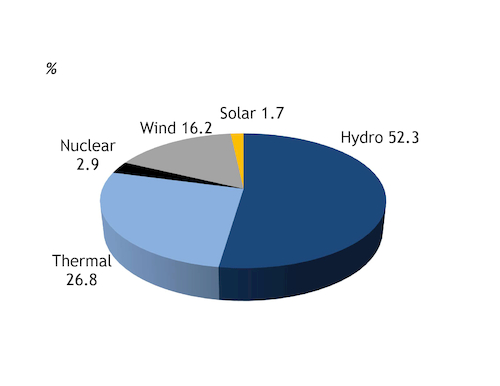
Ceramics producers in Brazil's Sao Paulo state have agreed to purchase biomethane from local sugarcane producers to help start renewable gas production by 2025.
Under an agreement between Brazilian ceramic tiles and fixtures association Anfacer and regional productive sugarcane cluster (Apla), 10 ceramic producers in Sao Paulo state — home to 64pc of Brazil's ceramics production — that are near sugarcane producers will receive 50,000m³/d at the beginning of the supply agreement in 2025.
According to Sao Paulo's ceramics producer association Aspacer, producers in the state want to initially shift 5pc of their natural gas consumption to biomethane. The goal is to use biomethane to supply half of the ten companies' gas demand by 2030 with 1mn m³/d of biomethane.
Production of ceramics for tiles and fixtures is the second largest natural gas-consuming industry in Brazil at 3.5mn m³/d, behind only the chemical industry. With Brazil's tight gas supply, high prices and the need to decarbonize their sector, ceramics producers want to shift part of their gas consumption to biomethane.
The agreement will also serve as a test to expand biomethane consumption at ceramics factories in other locations. The Santa Catarina state ceramics production hub is also a part of the supply agreement and may replicate the project in the southern state.
Ceramics producers see biomethane as a better option to access more gas at more competitive prices. Brazil's demand for natural gas is inhibited by relatively tight supply, as almost half of gas production is reinjected into oil wells to repressurize them or because of a lack of takeaway capacity.
The agreement is the first of the kind in the Brazilian gas market. The biomethane will reach consumers in the regional distribution company Comgas' piped distribution grid. Ceramics producers will be partially free consumers, meaning they will still receive fossil gas purchased from distributors but will buy biomethane directly from sugarcane producers, in deals mediated by gas traders.